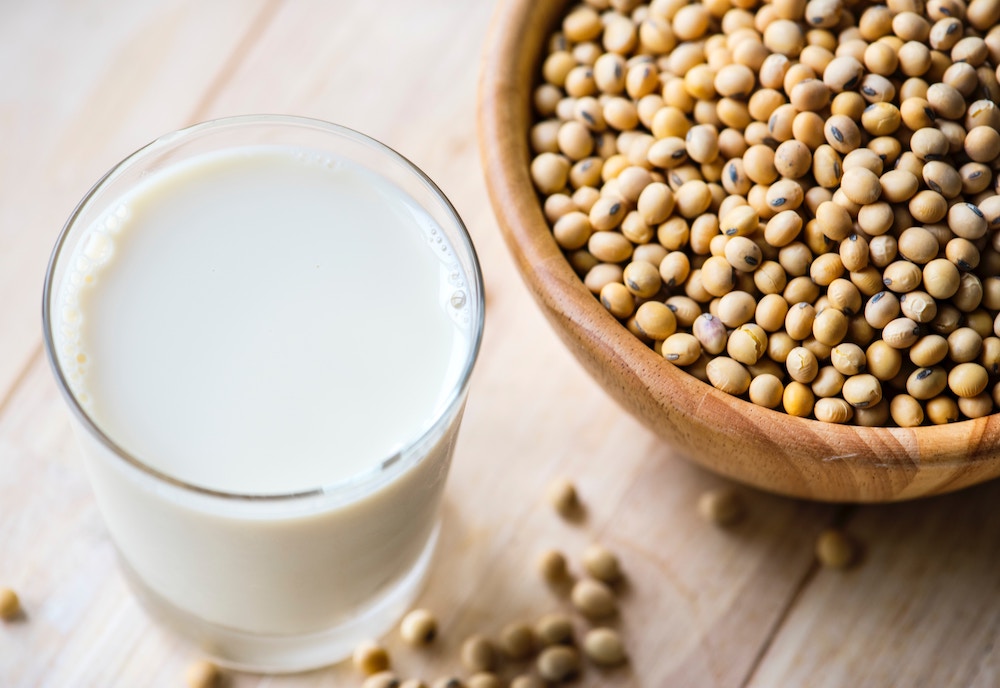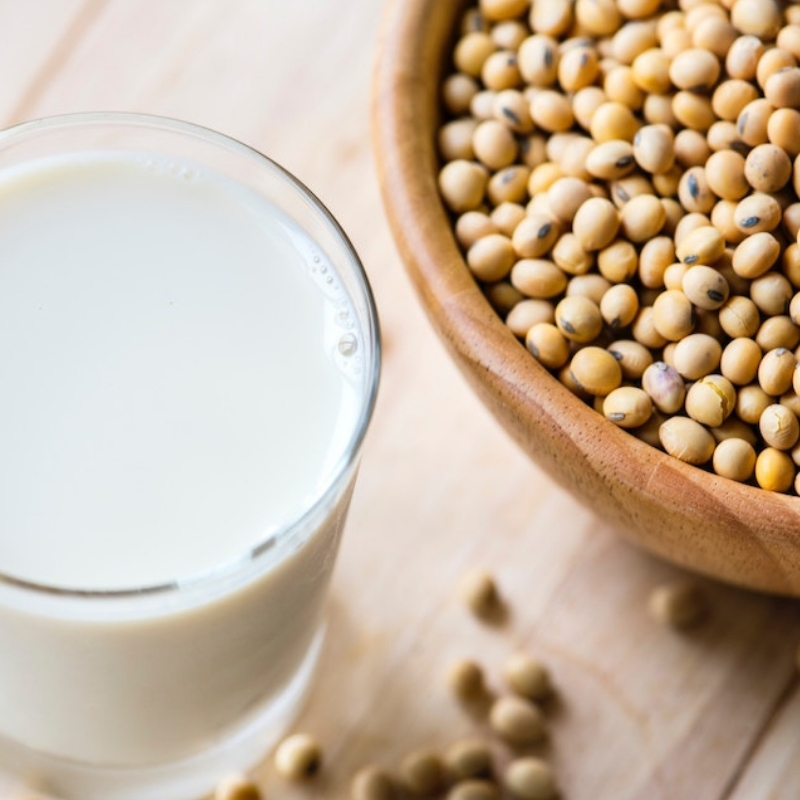January 22nd, 2019
Calcium, the Nutrient You May Need More of (and how to get more)

Do you know how important calcium is?
Calcium goes WAY beyond just your bones.
Calcium is a key electrolyte that’s involved in SO many things, including yes bone health, but also is involved in fluid balance, muscle contraction, HORMONE production, brain health, mood and so much more.
There’s definitely an obsession with calcium in this country, and in fact, most of us take too much of it and consume too much of it; however, I also find that so many of us actually are under consuming it as well.
Calcium is a mineral that’s largely found in soil, and once upon a time soil was SUPER rich in nutrients and minerals; sadly, though the soil has largely become depleted of all these rich minerals, so now we have to seek out many minerals in other sources.
If you’re like me and don’t drink dairy products, nor consume the calcium-fortified non-dairy products (maybe you make your own almond or nut-based milk or just don’t drink it)- you might not be getting enough. Fear not though, I’ve outlined MANY sources of extra calcium for you below.
If you find that you’re not a huge greens eater, don’t be shy, you may need to take a supplement. I’d recommend 250-500 mg daily- see how you feel. It makes a BIG difference in the way that I feel and how my muscles (and brain, frankly) feels.
Sources of calcium
Of course, you’re quite familiar with the dairy-product sources of dairy; after all they’re apparently the “best” sources, and while they’re good, they’re not the only sources.
To put it in perspective, 1 serving (about 6 oz) of a dairy product has about 400 mg of calcium (compare to the items below)… but alas there are PLENTY of other ways to get calcium, as below:
- Green leafy vegetables:
Kale: 1 cup contains 90 mg of calcium
Turnip greens: 1 cup boiled contains 200 mg of calcium
Arugula: 1 cup contains 125 mg of calcium
Broccoli: 1 cup contains 180 mg of calcium
- Oatmeal: 1 cup cooked contains 187 mg of calcium
- Soy:
Soybeans: 1 cup contains 260 mg of calcium
Tofu: 1 serving contains 250 mg of calcium - Oranges: 1 serving contains 60 mg of calcium
- Nuts/seeds:
Sesame seeds: 1 serving contains 280 mg of calcium
Almonds: 1 serving contains 80 mg of calcium
- Seafood:
Salmon: 1 3oz. serving contains 180 mg of calcium
Sardines: 1 3oz. serving contains 325 mg of calcium
- White beans: ½ cup contains 100 mg of calcium
- Dried figs: 2 dried figs contain 55 mg of calcium
- Dairy Alternatives: Some non-dairy milks may contain as much as 450 mg of calcium per 1 cup; it all depends on the brand and on the product, so read your labels!
How much calcium do you really need?
When looking for a non-dairy alternative, and if you’re completely dairy-free, it’s important that you pay attention to how much calcium you’re getting everyday (yes men can get osteoporosis too, so guys listen up!).
The daily recommendation from all food sources, supplements, and fortified foods is 1000 mg per day for men and women between the ages of 19-50; once women turn 51, the recommended daily amount is bumped up to 1200 mg/day, and once men and women reach age 71+, the recommended amount for both groups is 1,200 mg per day. HOWEVER, the actual recommendation by the World Health Organization is 500mg but they need to increase and adjust this recommendation to account for the increased calcium losses which is often due to high sodium and processed foods diets (SAD – Standard American Diet).
When perusing the nutrition label of a non-dairy alternative that may contain calcium, it’s important to look on the label for frequent claims that may say “Contains 50% more calcium than milk,” or simply look on the nutrition label and see that calcium has more than 5% RDA (insert picture)- often non-dairy milks will have as much as 45% RDA (about 450 mg) per 1 cup serving, which is a lot! Identifying claims on the front of the container, or seeking out the nutrition label on the side of the container will help you identify those that are fortified– as they’re not all fortified with calcium.
What about non-dairy milks? Which one is the best?
Another great question that I often get, as there are a plethora of non-dairy milks to choose from, and they all contain slightly different nutrient profiles and nutritional benefits, particularly if you’re making milk in your home (literally, soak nuts overnight- say 1 cup, then blend with 3/4 cup water- then strain it, and voila) versus purchasing in the store. Homemade milks tend to have more calories and in some cases more micronutrients as commercially made products tend to be more strained, which removes more of the nutrients.
Non-dairy milk options:
- Almond milk: Almond milk is naturally lower in fat and calories than other types of non-dairy milks (store bought- because it’s often like water). Almonds naturally contain potassium, phosphorus and zinc; and some store-bought brands contain calcium, vitamins A, D, and B12 if fortified, but remember it’s important to read the label! Almond milk, especially when purchased in the “unsweetened” variety, tends to be more watery than other types of milk; however this makes it a lighter milk.
- Coconut milk: One of the higher-fiber milks, due to the way it’s made by mixing the flesh of the coconut with the water inside, in addition to being creamy and delicious. If you make it at home, it will be higher in calories than most milks; however, store-bought varieties have blended with other non-dairy milks (i.e. almond/coconut) to lower the calorie content of the milk significantly. You can easily find “unsweetened” varieties that will also help to bring down the caloric content of the milk. Like other non-dairy milks, look for the fortified varieties to get more calcium and vitamins A, B12, and D.
- Soy milk: Generally thought of as the “original” non-dairy beverage, soy milk is made from soy beans and tends to be quite creamy. Soy beans are naturally a good source of protein. Like the other milks, if you purchase the fortified variety, it tends to be a good source of vitamins A, D, B12; calcium and other minerals.
- Hemp milk: Hemp seeds are naturally rich in ALA’s, the plant based version of omega 3 fatty acids (your body converts them into omega 3’s), a heart-healthy fat. Hemp seeds are also a rich source of protein. Hemp milk tends to be creamier than almond or unsweetened coconut milk. Like the other milks, if you purchase the fortified variety it may be a source of vitamins A, D, and B12; calcium and other minerals.
- Oat milk: Oat milk is a personal favorite because it’s quite creamy, naturally low fat, cholesterol-free, and like other non-dairy milks can be a good source of vitamins A, D, B12; calcium and other nutrients.
- Cashew milk: Tasty and creamy, and a rich source of vitamin K and magnesium- a mineral that aids in muscle contraction and promotes bone health. Store-bought cashew milk may provide a source of vitamins A, D and B12 in addition to calcium if fortified.
- Rice milk: Of all the milks, this one is my least favorite, as I find it quite watery and loaded with calories and extra sugars. Like others however, it may be fortified with calcium, and vitamins A, B12, and D; however, unless you can find an unsweetened variety I’d head for one of the other milks.
All of the milks are delicious! Nutritionally most of them are very similar, particularly if you’re purchasing commercially-made products. It’s important to look for unsweetened varieties (easy to find) to ensure that there isn’t a whole lot of extra sugars and additives. If you’re looking for a source of calcium, other than greens, nuts and other previously mentioned foods, it’s important to look for varieties that are fortified.
OTHER non-dairy Alternatives to Look Out For
- Coconut/almond and other yogurts: Non-dairy yogurts often have more added sugars and therefore it’s important to be a savvy consumer and read the label; always seek out items that have the lowest amount of sugar and the most protein.
- Coconut/soy/almond ice creams: There are so many types to choose from but: they often have a lot of sugar, and/or a lot of artificial sweeteners. The artificial sweeteners are not only possibly dangerous to our health, but can cause a laxative effect if consumed in higher quantities– something that’s very easy to do with these tasty products! So try to find varieties with real sugar, and try to consume in moderation.
Test out different varieties of non-dairy milks, cheese, yogurts etc., but be a savvy consumer and read your labels! Make sure you’re getting the most natural and least sweetened product with added calcium (if you’re in need of some extra!).




